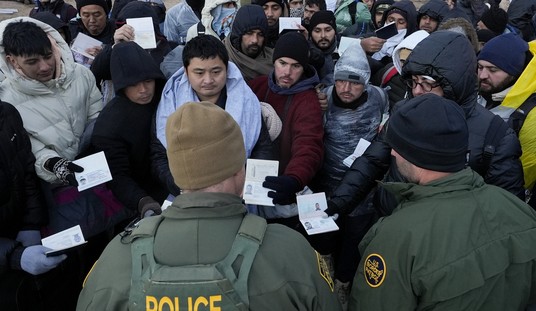Bearing Arms is a Second Amendment site, but we also touch on matters of security and general safety. The two things overlap a great deal.
Especially when it overlaps with the aftermath of the Apalachee High School shooting.
You see, in the aftermath of these things, we hear numerous reports of parents getting phone calls from their kids trapped inside the school with a total monster roaming around. These are presented in such a way that it brings home the horror of what parents of those kids experience and it's something no parent at all ever wants to deal with.
Yet it also sparks debate about their use in schools, particularly during such a time.
But school shootings are incredibly rare, despite what the media would have us believe. And according to many experts, kids with phones may actually be in more danger during an emergency.
Ken Trump, president of National School Safety and Security Services points out the real-world drawbacks of kids with phones in an active shooter situation or any other emergency.
“If you have 20 kids in a classroom and they’re texting, calling parents, livestreaming — they’re not paying full attention to the directions of adults and not being fully situationally aware of things they may need to quickly do to save their lives,” he said. “You have seconds to follow directions and move locations.”
Phones can create other hazards too, he said. Their ringing or buzzing might draw unwanted attention to classrooms where people are trying to hide. Having an influx of students making calls home or to 911 at the same time can overload phone networks or the emergency response system. And having parents race to school to check on their child after they receive an alarming text could block traffic, meaning emergency personnel can’t get in or out.
“Parents are going to come to the school anyway, but cellphones expedite that flocking to the school,” Trump said, calling phones more of “an emotional security blanket for parents” than something that actually makes kids safer.
The debate about cell phones in schools isn't likely to be solved here and now, but another complication that my PJ Media colleague Rick Moran didn't note is that at least some classes mandate cell phones.
Yeah, you read that right.
My son found that some of his classes in high school actually required him to use his cell phone to access websites, use particular apps, and other things that essentially meant they had to have them and use them inside the school. If a kid has to use a cell phone for a class, you can't very well tell them to leave it at home or in their cars, now can you?
In that case, should something like this happen, both parents and kids are going to use those phones. There's just nothing you're going to do to stop it.
Of course, if the school created a policy of no cell phones in school, teachers would adjust their class requirements accordingly, so that shouldn't prevent schools from doing what they feel they need to do.
The truth is that if we're going to talk about taking security steps after school shootings, then cell phone use has to be on the agenda. So far as I'm aware, it hasn't resulted in anyone being killed, but that may also only be a matter of time. Further, this is something to consider for your personal cell phone use since at least some of the concerns apply outside of schoolhouse walls.
And people wonder why my cell phone is always on silent.








Join the conversation as a VIP Member